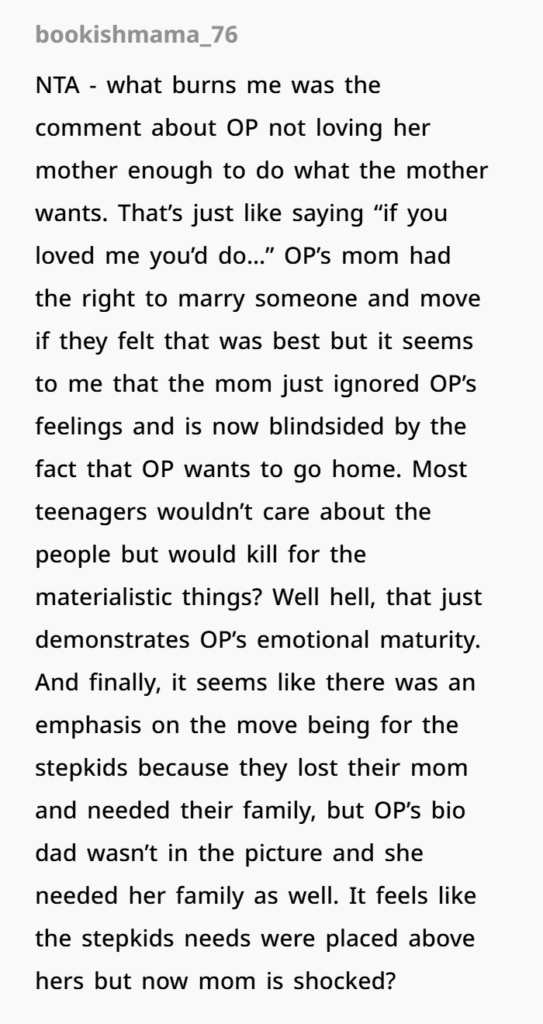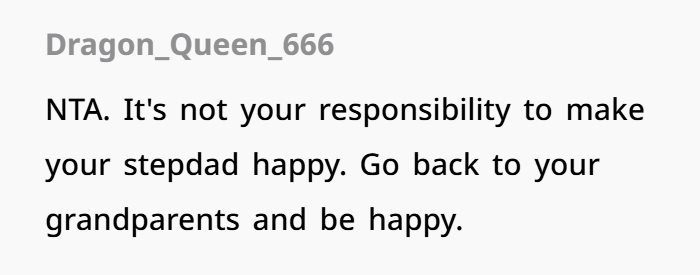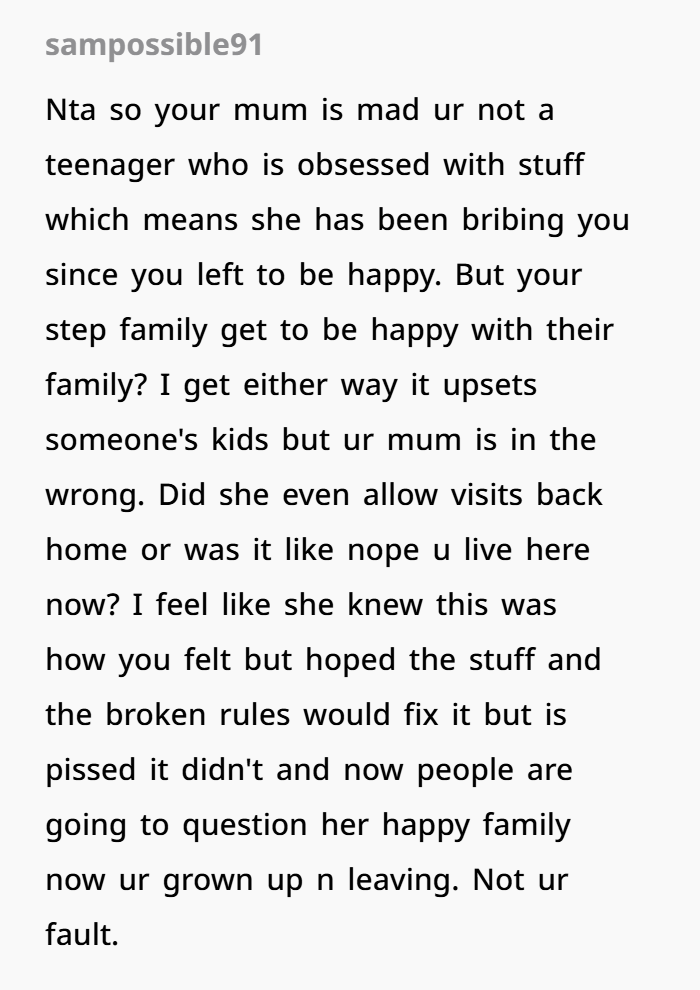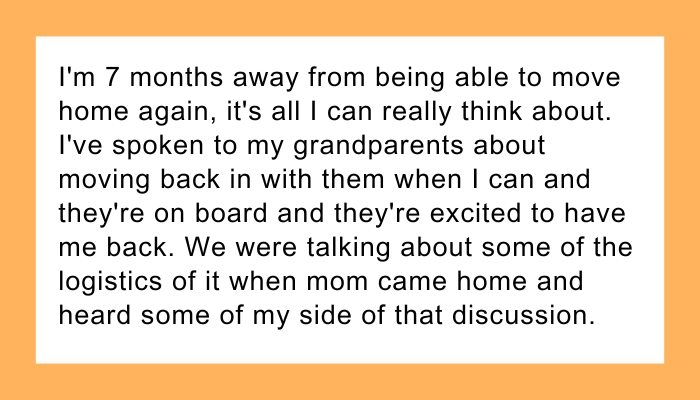Stepdad Uproots Teen’s Life For His Career, Mom Shocked She’s Been Secretly Planning Her Escape
In this emotional and deeply personal story, a 17-year-old girl grapples with the long-term impact of a major life transition that occurred when she was 13. After her mother remarried, the family moved several states away to accommodate her stepfather’s job opportunity and to be closer to his extended family. This move uprooted the narrator from a close-knit support system that included her grandparents, aunts, uncles, and cousins—all of whom lived nearby and had been constants in her life. Unlike her step-siblings, who returned to familiar surroundings, the narrator found herself isolated and struggling to redefine the concept of “home” in a place that never felt like hers.
The conflict reaches a breaking point when the narrator, now nearing adulthood, begins making plans to move back in with her grandparents—plans her mother accidentally overhears. The ensuing confrontation lays bare long-simmering tensions. The narrator openly admits that she never tried to see the new place as home and that, for her, home has always been about the people she left behind. Her mother, devastated by this admission, feels rejected—not only for herself but on behalf of her husband and stepchildren. Accusations of selfishness and ingratitude follow, setting the stage for a painful emotional reckoning.
Read for more info Reddit
Moving to a new place is exciting, unless you’re being dragged there against your will
One teen finds herself stuck in an unfamiliar town after her mom and stepdad decide to start fresh, but she plans to move back with her grandparents
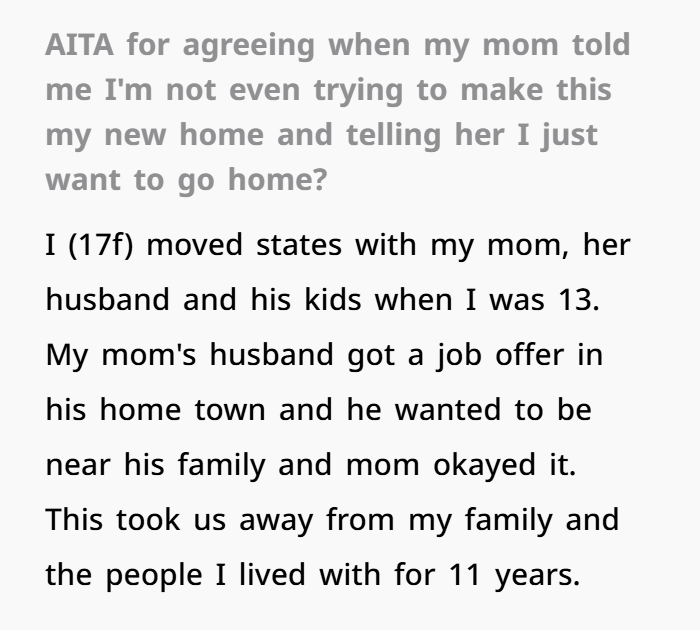














The core of this story centers on emotional displacement, a well-documented psychological experience often felt by children and teens who are forced to relocate due to adult decisions. Research indicates that adolescents moved due to parental remarriage or job relocation experience higher levels of stress and identity disruption, especially when they leave behind primary attachment figures (Levin, 2003). In this case, the narrator’s attachment to her grandparents and extended maternal family forms the emotional foundation of her identity. Losing proximity to them in exchange for a family she did not choose or connect with is more than a geographic shift—it’s an existential dislocation.
The stepfamily dynamic adds a complex layer. While many blended families thrive over time, studies show that relationships between stepchildren and stepparents are highly variable and often strained if integration is not handled with sensitivity to the child’s preexisting bonds (Ganong & Coleman, 2004). Here, the stepfather’s role—though well-intentioned—was not accepted due to the narrator’s existing familial structures, particularly the paternal roles already filled by her grandfather and uncle. Attempts to replace or replicate these relationships, especially without mutual consent, can backfire emotionally.
Legally, as the narrator nears 18, she is within her rights to choose her residence. In most U.S. jurisdictions, minors gain increasing autonomy in decision-making as they approach adulthood, and courts typically support a nearly-18 teen’s choice in custodial matters unless safety is a concern (American Bar Association, 2022). From a parental responsibility standpoint, it’s also important to acknowledge that while parents may hope to recreate unity in a blended household, respecting a child’s sense of identity and origin is critical to emotional development and long-term relational health.
Netizens side with the teen, saying her mom tried to bribe her with things, probably knowing she is not happy in the new place

